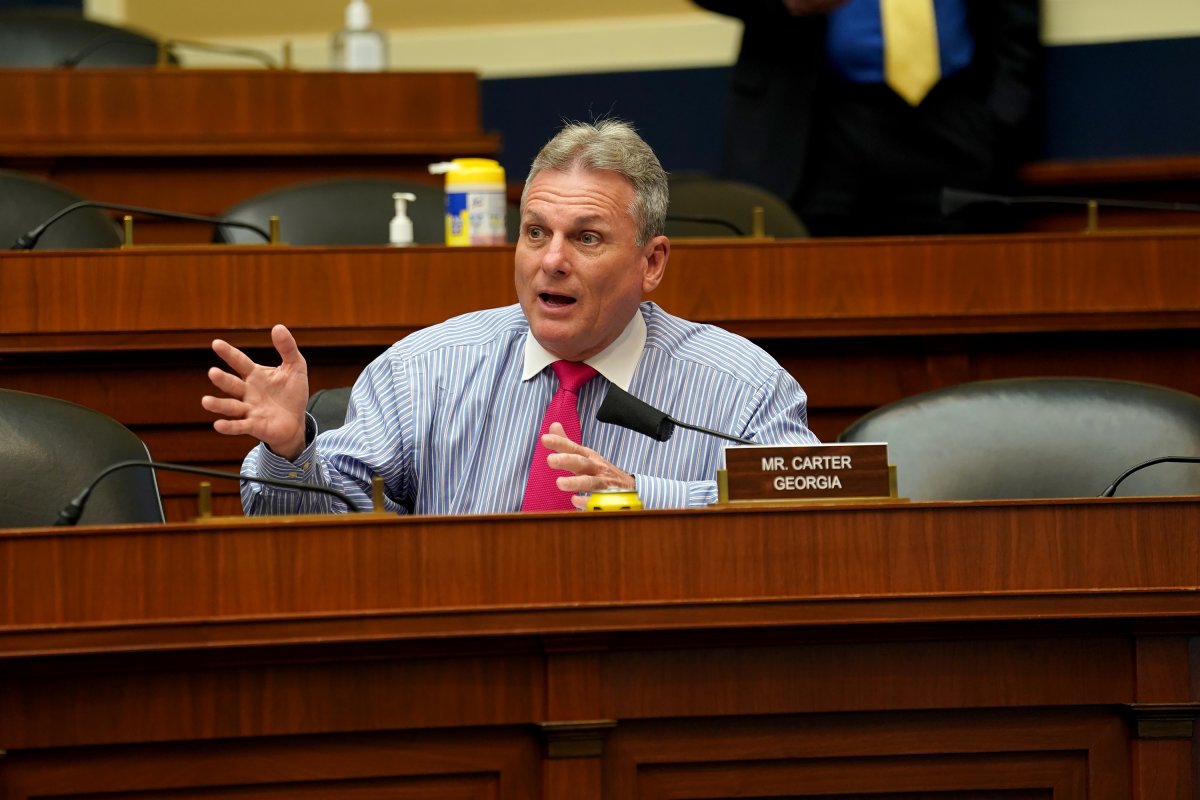A Republican congressman has urged his colleagues to embrace sleeping in their offices and using the House gym, which he says will promote nonpartisanship in the U.S. Capitol.
In an opinion piece for The New York Times published on Tuesday, Representative Buddy Carter, who represents Georgia's 1st Congressional District, described the House gym as "a place to build community outside the bounds of political partisanship."
Carter said that while there was "no official count" of how many members slept in their offices, he knew "at least a dozen" that did.
"I submit that Congress would be more effective if every member slept in their office because there is inherent value in getting to know people across the aisle as people rather than as just the opposition," the congressman wrote.
Carter said that the Capitol was "sorely lacking" in nonpartisan spaces, with Democratic and Republican members of Congress meeting at different clubs while in the city.
However, the one room where bipartisanship "thrived" was the House gym, according to Carter.
"In the House gym, kettlebells and treadmills replace member pins and TV cameras. Athleticism and determination reign supreme. We have friendly competition not on the strength of our ideas but on the strength of our bodies. The push-up position doesn't care if you have an R or a D next to your name," he wrote.
Carter divulged that he often joins two fellow politicians, Republican Senator Markwayne Mullin and Democratic Representative Josh Gottheimer, for "a one-hour, 1,000 push-up challenge."
Carter said, "We need more bipartisanship in Washington, so we must foster nonpartisan cooperation, which is how real relationships and friendships based on trust form."

Although Carter is keen for his colleagues to pick up the habit, sleeping in the office isn't something that sleep expert Dr. David Lee, author of Teaching the World to Sleep and clinical director of Sleep Unlimited, a company of sleep experts in the United Kingdom, would recommend for most.
"Good sleep likes a kind of quiet sanctuary space," he told Newsweek.
"Good sleepers will just sleep in their bedroom. They don't do anything else in there, and as a result, when they go in there, it queues them up for sleep."
Lee pointed out that during the COVID-19 pandemic, many began to work from their traditional places of rest, like their bedrooms, which he said led to an upswing in sleep problems as the stimuli that regulated sleep were diluted.
"The chances are that you're not going to sleep well in that environment because you're going to be thinking about work. And during the day, you might not work well in that environment because you think about sleep," Lee said.
Do you have a story we should be covering? Do you have any questions about this article? Contact LiveNews@newsweek.com









![SOURCE SPORTS: [WATCH] Mets Capt. David Wright Gives Interesting Insight On The Honor Of His Jersey Retirement In Citi Field](https://thesource.com/wp-content/uploads/2025/01/01fs75fy836w8mp4ytwr.webp)










 English (US) ·
English (US) ·